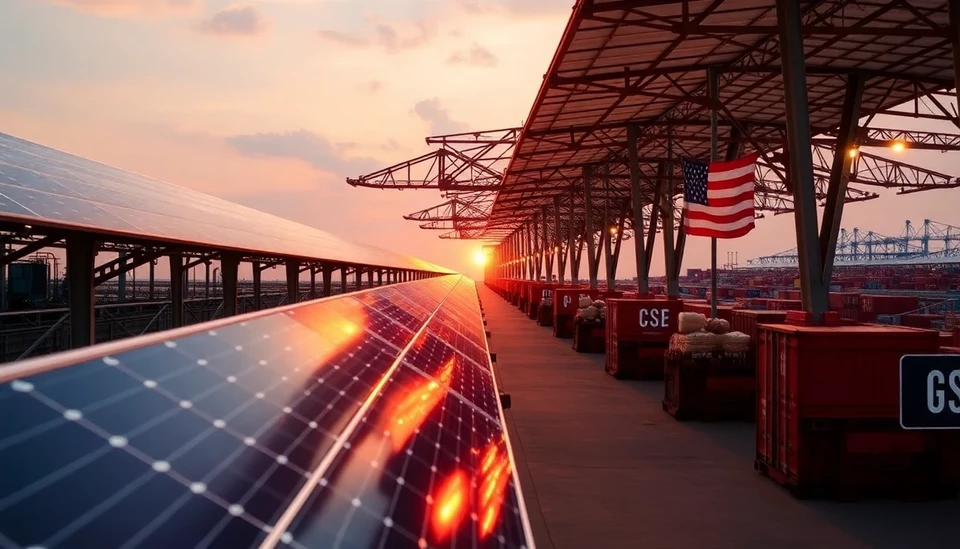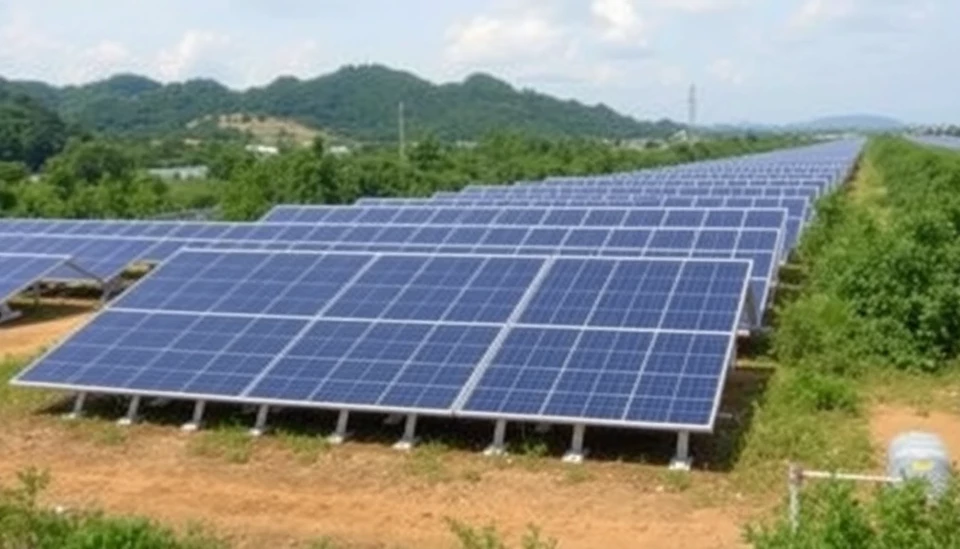
The Biden administration has taken a significant step in the realm of international trade, announcing new tariffs on solar panels imported from several Southeast Asian nations, including Thailand, Vietnam, and Malaysia. This decision comes amid concerns that these counties are routing products to the United States to circumvent existing tariffs on Chinese solar panel imports, effectively undermining the trade policy aimed at protecting domestic solar manufacturing.
This new policy, which is poised to reshape the solar import landscape, imposes duties of nearly 30% on these imports, impacting a sector that has seen rapid growth in recent years. The administration’s move is part of a broader strategy to bolster American green energy manufacturing and to ensure that domestic companies can compete effectively in an increasingly competitive global market.
Officials from the Department of Commerce stated that the new duties are necessary to prevent "circumvention" of penalties already levied against Chinese manufacturers for selling solar cells and modules at prices below production costs. By sustaining a protective barrier, the government aims to stimulate local production and innovation, which have been lagging in the face of cheaper imports.
Industry reactions have been mixed. Supporters of the duties argue that the tariffs will help level the playing field for U.S. manufacturers who have struggled to compete against the influx of imported solar products. In contrast, detractors warn that these new import restrictions could lead to increased prices for solar installations, potentially slowing down the adoption of renewable energy solutions across the country.
Aside from potential price increases, the tariffs could also complicate the supply chains of solar installers who rely on imported components for their projects. Many small to mid-sized businesses expressed their concern that the increased costs associated with the new duties might lead to project delays, or worse, deter new investments in solar energy systems.
Environmental advocates have also voiced their apprehensions, stressing that the push for domestic manufacturing should not come at the expense of climate goals. The irony lies in the fact that while the government pushes for clean energy solutions, such trade barriers might ultimately restrict access to affordable solar energy options, hampering national efforts to combat climate change.
In response to the announcement, representatives from various trade associations are calling for an urgent dialogue with the administration to mitigate any potential negative impacts on the solar industry. They argue that a more collaborative approach could yield benefits for domestic manufacturing without compromising the accessibility of renewable energy technologies.
As the new tariffs take effect, stakeholders in the renewable energy sector will be watching closely to see how these trade policies will influence prices, installation rates, and the overall growth of solar energy adoption throughout the United States.
In conclusion, the introduction of these new tariffs reflects a significant policy shift under the Biden administration aimed at fostering domestic production in the renewable energy sector. However, the broader implications for prices, supply chains, and environmental goals remain to be fully understood as this complex situation unfolds in the coming months.
#SolarTariffs #USTradePolicy #RenewableEnergy #GreenManufacturing #SolarImports
Author: Rachel Greene
